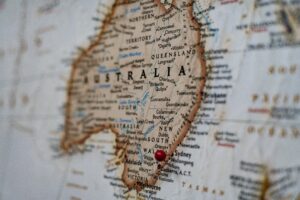
In recent years, copyright departments in governments around the world have been preoccupied with AI’s effects on copyright industries and, more recently, copyright law challenges created for AI industries. What about ‘Down Under’? Which copyright issues has the Australian government been grappling with?
Over the last few years, the Australian government has been observing public consultations on AI and IP issues that have been conducted in other jurisdictions, especially in the UK and US, and listening to conversations happening among local stakeholders and academics. The Government was considering announcing an Australian public consultation on AI and IP issues, but this has not happened yet.
Instead, in November 2022, the Attorney-General’s Department announced the Copyright Enforcement Review. The Issues Paper, the document that outlines issues for public consultation but does not list specific legislative proposals, was published on 9 December 2022. It sought public views on various copyright enforcement challenges, including industry-led enforcement mechanisms, the website blocking scheme that was introduced in Australia in 2015, a statutory safe harbour and notice and take-down scheme, access to courts in copyright disputes, especially small ones, and remedies for copyright infringements.
Interestingly, the Issues Paper did not mention AI at all and did not raise any challenges that it causes in the copyright space. Despite that, challenges caused by these technologies (though pre-generative AI) were picked up in a few submissions and raised by a number of stakeholders (e.g., Google, Australian Society of Authors).
After reviewing the submissions, the Attorney-General’s department decided to organise several Roundtables on Copyright to discuss issues raised by stakeholders. Copyright and AI was one of the topics covered in the Third Roundtable that was held on 28-29 August 2023. For this Roundtable, the Government prepared an Issues paper on AI and Copyright that for the first time introduced AI and generative AI in the copyright policy discussion in Australia and summarised the opportunities and challenges these technologies present in the copyright space, as well as recent international developments.
The Third Roundtable was by invitation only and was attended by 47 organisations representing right holders and users of copyright subject matter. During the discussions, stakeholders shared challenges that AI technologies are raising in their industries but did not identify or propose any specific policy or legislative reforms. The Attorney-General’s Department is now considering the establishment of an AI and Copyright Expert Reference Group “to help inform the Government’s broader ongoing consideration of AI issues” in the coming years.
The Attorney-General’s department has thus adopted a ‘wait and see’ approach to AI and copyright, as have many governments in smaller jurisdictions. They are waiting to see what US courts decide in the current legal actions against AI companies and whether other countries take any legislative action in this fast-changing technical landscape.
It is worth recalling that current Australian copyright law does not have a broad fair use exception (as in the US) or specific text-and-data mining exceptions (as in the UK or EU) and thus provides higher copyright protection to right holders. The only possible defences for AI developers using copyright-protected content in AI training processes are the relatively limited fair dealing provisions (e.g., for research and study) or the narrow temporary reproduction exceptions (ss 43A and 43B Copyright Act 1968) that were originally introduced for online cache and RAM copies.
While there have been numerous policy and academic proposals to introduce either fair use (see, e.g., here) or a more limited copyright exception for TDM (see, e.g., here and here) in Australia, nothing has come out of these proposals as yet.
As a final note, another part of the Australian Government, the Department of Industry, Science and Resources, is currently leading the discussion on AI regulation in Australia. In 2023, the Department conducted a public consultation on ‘Safe and Responsible AI in Australia’ which received 448 public responses, a large number of them referring to copyright issues. The Department is currently formulating a proposal on what measures Australia could adopt to foster responsible uptake of AI technologies, and is considering a risk-based approach as proposed in the EU AI Act and the Canadian Artificial Intelligence and Data Act (AIDA). In parallel, New South Wales, the largest Australian State, has established a NSW Parliamentary Inquiry in AI that closed at the end of 2023. Neither of these are likely to propose any significant changes to copyright laws but may perhaps introduce some copyright-related provisions (such as increased transparency obligations) through a ‘back door’.
________________________
To make sure you do not miss out on regular updates from the Kluwer Copyright Blog, please subscribe here.


